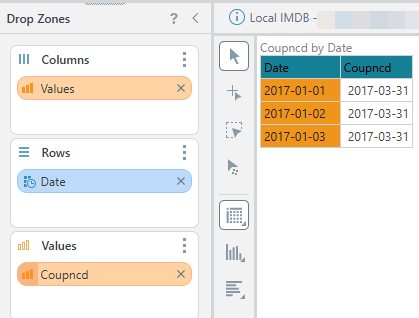 Coupncd (PQL)
Coupncd (PQL)
Returns the next coupon date after the settlement date.
- Returned Output: Date
- Library: PQL \ Common \ Financial
- Version: 2025.01.000
- Compatibility:
- It can be combined with other PQL functions throughout the application.
- It CANNOT be used with MDX or VBA functions. But it can be used on MDX-based content in other parts of the application.
Syntax
* Click on the function's arguments above for more details on the input values.
Comments
This function is the same as the Microsoft Excel 'COUPNCD' function - using the same inputs, logic, and outputs.
Function Arguments
|
Name |
Description |
Type |
Optional |
|---|---|---|---|
|
settlement |
Settlement date for the security. |
String or Number (<Date>) |
|
|
maturity |
Maturity date for the security. |
String or Number (<Date>) |
|
|
frequency |
Frequency of payment, number of coupon payments per year; must be 1, 2, or 4. |
<Numeric> |
|
|
basis |
Integer representing the basis for day count. |
<Numeric> |
Y |
Note: Literal encoding is in use; this means that Booleans and Dates are represented as numeric values (1 and 0 and timestamps or serial date numbers, respectively).
Example
This example calculates the next coupon date after a given settlement date from a bond that matures on "2017-03-31":
Coupncd( [Data].[Date].Currentmember.caption, "2017-03-31", 1 )
